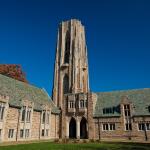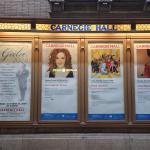The Southern Baptist Convention (SBC), the largest Protestant denomination in the United States, continued its drop in baptisms, membership, and weekly attendance in 2015. Some contend the declining statistics result from tightened bookkeeping regulations while others note lacking evangelism. Even so, with record-breaking church planting and renewal efforts, Southern Baptists have reason to hope for a prosperous future.
Representatives of the SBC prepare to gather for their annual convention next week in St. Louis. No doubt prayer for revival in the wake of shrinking statistics will be a priority. According to the SBC’s latest Annual Church Profile (ACP) report, church membership declined by 200,000 members between 2014 and 2015. Attendance also fell by 97,381 in just two years and the total number of Baptisms dipped from 305,301 in 2014 to 295,212 in 2015.
Multiple Southern Baptists have noted various contributing factors as reasoning for the steady pattern of decline. The Courier recently reported the decline in baptisms abroad could be a result of tighter data-reporting methods required by the SBC’s International Mission Board. For example, missionaries can no longer record baptisms “performed by partner conventions and other ministries ‘in which IMB personnel were less directly involved.’” Similarly, measures to ensure accurate membership reports from local churches might be weeding out uncommitted members.
Whatever the cause, we can celebrate the areas in which the SBC saw growth. The ACP report shows SBC church planting reached an all-time high last year, with 46,793 congregations total.* This is certainly true. In Washington D.C., in almost every neighborhood you can find a vibrant SBC church plant meeting in a local school or theatre.
So why else could a disconnect exist between SBC church planting growth and membership, attendance, and baptism declines? “Southern Baptists are less evangelistic,” acknowledged Trevin Wax last year, a popular Southern Baptist cultural commentator and managing editor of The Gospel Project. “There’s no way to prove or disprove this statement. But considering the drop in the SBC’s baptismal numbers, it seems clear that Southern Baptist outreach efforts are diminishing — either in effectiveness or intensity, perhaps both.”
Wax makes an interesting observation here. It’s plausible veteran Southern Baptists are failing to evangelize at the same rate as SBC church planters. And if he is correct, then Southern Baptists do have reason for concern.
The Institute on Religion and Democracy’s staff have long observed harmful patterns of decline among the mainline denominations. Liberal mainline denominations like the Episcopal Church and the Presbyterian Church (USA) only plant three or four new congregations per year. These denominations don’t forgo church planting because they don’t have the time or resources. It’s because leadership believes they have a better method than evangelizing. Their strategy is to evolve with secular culture at the cost of Gospel truths. It’s not working. The Episcopal Church is losing nearly 70 parishes a year. Others, like the United Church of Christ tend to walk a line dangerously close to universalism and so do not sense an urgency to spread the Gospel.
It is when faithful Christians uphold the Word of God as authoritative in our lives, that we sense the urgency in soul-saving and refuse to be embarrassed by the tough truths of the Gospel. For example, Hell is a consequence of sin and only through Jesus Christ can we be saved from our innate sin. These are uncomfortable conversations to have with your college roommates, next-door neighbors, or unsaved family members.
Not to mention, secular culture is becoming increasingly hostile to traditional Christian values, making liberal, unorthodox doctrine more alluring, especially for younger Evangelicals. These losses are likely reflected in SBC’s recent statistical summary.
The bright spot is a renewal among young Southern Baptist leaders is unfolding and it will take time before the statistics reflect their work within previously unhealthy churches. Right now the SBC is placing significant importance on discipleship and missions, and is less concerned with attracting free spirited attendees to a rock-concert style performance.
As a relatively new Southern Baptists, it was the emphasis on discipleship and evangelism that drew to the denomination.
I grew up in the Assemblies of God denomination, of which I am still quite fond. However, when I moved to Washington D.C. I searched out a healthy, orthodox church that wasn’t a megachurch. A friend invited me to her Baptist church. I’ll admit I was hesitant at first. But I also was sick of the fluffy generic evangelical megachurches I flouted in and out of every week. Something more reverent and traditional sounded appealing. Plus, someone actually invited me to their church. How nice.
This particular Baptist church was unique in that it was both an affiliate of the Southern Baptist Convention and the Cooperative Baptist Fellowship, which made it a bit more moderate. Time passed, I asked many questions, took the Baptist 101 class, became very drawn to the bold faithfulness of the SBC leadership, and so joined the church as a member. What most attracted me to the SBC was a clear recognition that being a Christian is about more than yourself.
Having a personal relationship with Jesus Christ and experiences with the Holy Spirit are important, but that’s not the end. How warm and fuzzy you leave church on Sunday isn’t the point of church. I realized the Church meant I belonged to the body of Christ and was expected to speak the truth and demonstrate the Christ’s love through service to others. All a bit new for this particular Charismatic. I loved it.
The SBC is still a very relevant voice in local communities around the world. It’s my belief continued church planting and an emphasis on discipleship will eventually offset the SBC’s decline, but only if the denomination’s clergy and congregants remain steadfast to the undistorted Gospel.
*Update: The original version of this article stated the SBC’s planted 46,793 “new” churches. The SBC’s church planting grew the denomination to 46,793 churches total. The article has been corrected.
















